November 24, 2020
Is it just me, or does the world seem a bit “on edge,” stressed out, and in serious need of some peace and tranquility right now?
Everything from societal unrest, to the never-ending game of political tug of war, to COVID restrictions have left many people mourning the loss of any sense of control they once had.
Then, there's technology, which has inadvertently made it easier than ever to spend a lot more time fixated on these things we have no control over. Humans are not biologically wired to maintain the level of stimulation demanded to consume social media, television, and news at the rate that smartphones and the internet allow us to. We’re spending a whole lot more time paying attention to an increasingly chaotic world that, again, we have no control over—often to the detriment of something we do have control over, our relationships with friends and loved ones.
When we don’t take the time to address this, a vicious cycle of helplessness and feeling overwhelmed ensues and grows and fuels itself like a snowball spinning down a mountain, resulting in incessant negative thinking and eventually leading to what is known in psychology as “burnout”—a concept I recently explored on this podcast.
So, how do you stop this snowball dead in its tracks and restore your sense of control?
To answer that, I reached out to a recent podcast guest of mine, Dr. David Rabin, a board-certified psychiatrist, translational neuroscientist, and inventor specializing in the treatment of PTSD, depression, anxiety, and substance use disorders. Dr. Rabin has spent the past 14 years researching treatments to combat the negative effects of chronic stress on physical and mental health.
In today’s guest article by Dr. Rabin, you’ll discover how to recover from burnout by regaining a sense of control in your life through a combination of traditional approaches, a few “under the radar” stress-reduction tactics Dr. Rabin uses in his practice, and exciting new technology that allows you to almost instantly hit the brakes on stress with the push of a button.
What Is “Burnout”?
When stress becomes overwhelming and persistent over time, it can have profoundly negative impacts on your health – and your endocrine system, particularly, takes a big hit.
Long-term exposure to stress has been shown to lead to various endocrine disorders, including hyperthyroidism, diabetes, gonadal dysfunction, psychosocial dwarfism (an extreme form of failure to thrive associated with dramatic behavioral abnormalities), and obesity—to name a few.
Under stress, your nervous system directs precious bodily resources such as blood and oxygen to fuel your fight, flight, or freeze responses that are focused explicitly on survival (motor cortex, skeletal muscle, heart, lungs, etc). Everything else—including immunity, reproduction, sleep, metabolism, creativity, and empathy—gets sidelined until you're “safe” enough to allocate resources to them again without putting yourself at risk.
Cortisol, which you can learn all about in Ben's article, “Why We’re All Chronically Stressed, And How You Can Combat Stress With Food And Supplementation,” is a key player in this fight, flight, or freeze response, life-saving when it kicks in because of a survival threat (when your life is truly in danger), but sometimes deadly when you're under chronic stress (not actually in any immediate physical danger). This constant cortisol elevation can actually cause the death of brain cells in your hippocampus—the part of your brain responsible for storing short-term memories and passing them into long-term storage.
Combine this with poor sleep, low motivation, low mood, and anhedonia (getting less pleasure out of things you used to enjoy), and you end up with burnout. This condition affects hundreds of millions of people worldwide to the point where even the World Health Organization named burnout an “occupational phenomenon.” When I said cortisol could be deadly a few sentences ago, I wasn't being hyperbolic: Burnout is literally killing countless Americans each year. (Roughly 120,000 Americans die each year as a direct result of work-related stress.) Burnout is something that's not talked about nearly enough, even though it impacts everyone from physicians like me to California’s firefighters.
You may be thinking to yourself, “But I'm healthy, I'm pretty sure “stress” isn't going to kill me anytime soon.”
While that may be true, burnout also increases your risk of getting sick with everything from the common cold to airborne viruses and also disrupts the balance of your nervous system—meaning your ability to be consistently productive at work, sleep well, reproduce, digest food, and build meaningful relationships all suffer. In my eyes, these are all the essential factors that make life meaningful.
A simple exercise developed by Dr. Joe Maroon, “burnout expert” and author of Square One: A Simple Guide To A Balanced Life (who happened to join me on the podcast I recently recorded with Ben) can give you an idea of how likely you are to become susceptible to burnout.
Draw a square and label each side one of the following: Work, Relationships, Spirituality, and Physical. As you look at your square, and what each side represents, consider how much time and energy you spend on each side.

Very few people have an evenly balanced square, so don’t feel bad if this is the case for you. Each morning, take a look at your square and consider your schedule and what you're devoting your time to. A balanced square equals a more fulfilled, balanced, and resilient you—a you that is less likely to burn out and more likely to feel happy, content, and in control.
As scary as all of this may seem, there is one hopeful aspect of burnout that's important to remember: It can be completely preventable by learning to use the simple tools I'll describe below.
How To Recover From Burnout With Traditional Strategies
In a chaotic world where little is in your control, it is not uncommon to seek control anywhere you can find it. Unfortunately, this often takes the form of self-medicating with whatever you have around—whether that’s caffeine, alcohol, nicotine, pot, or something else.
Healthy living practices such as prioritizing sleep, exercising, and breathwork practices are other tactics that can help give you a sense of control and empowerment. The problem is, when you find yourself already stressed out, tapping into breathwork, exercise, and even something as simple as trying out a new sleep routine—no matter how much you know they may help—becomes insurmountable because they require a change of routine and effort.
This is because your brain opposes change when you're already overwhelmed and exhausted. Thinking about changing your old, less healthy routines, or putting effort into breaking habits of any kind may be beneficial in the long run, but unfortunately, this is a case of “easier said than done.” We are creatures of habit, and especially in times of stress, our bodies cling to these habits and routines. With that said, there is hope! The key is implementing these changes before burnout hits.
As you probably already know, prioritizing and getting deep, restful sleep is the single most crucial thing that you can do to recover from stress. When you get your 8 hours of sleep (or whatever that sweet spot is for you for a restful night of sleep) on a regular basis, you feel better during the day, get sick less often, have more energy, and spend your days generally in a better mood. Ben has a plethora of resources on this topic that you can dive into if you need help dialing in your sleep:
- 10-3-2-1-0: Five Numbers To Remember For Lulling Yourself Into A Deep, Restorative Slumber (Without Fancy Biohacks Or Supplements).
- Sabbath Ramblings: Now I Lay Me Down To Sleep (5 Key Principles For A Good Night’s Rest).
- My Latest Sleep Biohacks, Habits, Routines, Rituals, Longevity Tips, Parenting Strategies, Spiritual Disciplines & More!
- Deep Sleep Decoded: Everything You Need To Know To Increase Your Deep Sleep Percentages.
- Ben Greenfield’s Ultimate Guide To Napping, Jet Lag, Sleep Cycles, Insomnia, Sleep Food, Sleep Supplements, Exercise Before Bed & Much, Much More!
- The Problem With Sleeping On Your Side, How To Sleep On Your Back, Little-Known Sleep Enhancement Tricks & Much More!
- Everything You Need To Know About Sleep Cycles (And Four Ways To Hack Your Sleep Cycles)
- How I Track Sleep, The Top 7 Sleep Parameters To Track, Interpreting Your Sleep Trends & Much More.
- How Something Called Pulsed Electromagnetic Field Therapy Can Make You Sleep Like A Baby (And Do Much More Than That).
- The Last Resource You’ll Ever Need To Get Better Sleep, Eliminate Insomnia, Beat Jet Lag and Master The Nap: Part 1, Part 2
- 5 Biohacks To Beat Insomnia, Sleep Better On Airplanes, And Shut Down Stress.
- Why Your Brain Probably Doesn’t Make Enough Chemicals To Help You Sleep (And What You Can Do About It).
- A Tiny, 1/2 Ounce Piece Of Game-Changing Sleep Technology (And How To Use PEMF For Sleep)
- 18 Big Exercise, Food & Supplement Tips To Defy Insomnia, Enhance Sleep & Wake Refreshed.
Next, regular exercise is another important component for recovering from stress (and as an added bonus, holding off many of the unpleasant consequences of aging). In Spark: The Revolutionary New Science of Exercise and the Brain, author John Ratey describes in great detail how exercise grows brain cells, improves functioning, can be as effective as antidepressants, allows for better focus, and significantly reduces stress and anxiety. Physical exercise helps train your autonomic nervous system to be toned so that it can more easily ramp up or down in response to changes in the environment. So, take a walk or go for a run, swim, dance—just be sure to get off the couch and get your heart rate up for at least 30 minutes every day.
Finally, mindful breathing has incredible benefits for a stressed-out mind and body. It can help you fall asleep faster, focus better, take control of your heart rate, and most interestingly, take control of your attention. If you really want to dive deep into breathwork, check out Ben's “Ultimate Breathwork Ninja Guide” or his recent article on the exact breathwork protocol he's been doing with his sons during quarantine. For a quick start to breathwork, here’s how I practice breathing and help newcomers (or experienced individuals) get more out of mindful breathwork:
- Purse your lips as if you are whistling or breathing through a straw, but without making a sound.
- Breathe in through your mouth (Notice that by moving your lips very slightly and gently, you can change the speed and amount of air moving into your mouth and lungs.)
- Breathe out through your mouth and feel the air moving in and out of your whole body: Be mindful of your lips, throat, windpipe, lungs—everything.
- Repeat.
Do this for 2-5 minutes any time you're feeling overwhelmed, and here's one important thing to remember: It's more effective when you exhale at least a little bit longer than you inhale.
To recap: Prioritize getting deep, restful sleep every night; exercise every day for at least 30 minutes; and incorporate breathwork into your daily routine by doing the exercise I mentioned above or something like Ben's quarantine breathwork routine.
How To Recover From Burnout Using Intention
In addition to sleep, exercise, and breathwork, there are a few key “under the radar” strategies I use with my clients with great success.
For example, practicing intention, self-respect, and something called “The Four Pillars” will form the foundation of trust in yourself that will allow meaningful change to take hold in your life and actually stick.
1. Intention
In a nutshell, intention is guiding your attention purposefully toward a thought, feeling, or thing. It's not enough to simply know what the word intention means, you need to spend a few moments developing a deeper understanding of this meaning. This is to not only give your thoughts power over your experiences, it is critical for the practices of self-respect and The Four Pillars you're about to discover. Taking intention a step further, intentionality is your guided thoughts, multiplied by time. When you think about something over an extended period of time, the amount of our energy directed toward that thing you are thinking about increases. So, take some time to sit and think about the concept of intention. This will help you to understand why concentrating your attention and energy on thoughts and behaviors that serve you in both the short- and long-term could not be more important to focus on during these uncertain times.
2. Self Respect
We all have thoughts that sometimes pop into our heads that are frustrating, unpleasant, and not useful (sometimes a lot of the time). That little thought-pump machine in the middle of your brain that never seems to turn off is part of being human. In fact, over 50 percent of our thinking is spontaneous, stimulus-independent thought (mind-wandering, daydreaming, intrusive thoughts, etc.). It's when these thoughts become overwhelmingly unpleasant and uncomfortable that they become a problem. So, when these types of thoughts pop into your head, make sure they pass the test of being worth your precious time. After all, you only have so much time each day—best not to spend the few precious hours you have dwelling on the negative.
By using the “Is it true? Is it useful?” test—a staple of Cognitive Behavioral Therapy (CBT) that actually dates back to Socrates in ancient Greece—you can ensure respect for your time, and the time of whoever it is you are communicating with. Basically, every time you have a thought, it must be both true and useful to deserve your attention. If the thought is neither, or only one of these, then it doesn’t pass the test. Let it go to create space to think about something else. Your time is extremely valuable, particularly the time you spend thinking about things. For something to be worth your time and effort, it must be both true AND useful.
2. The Four Pillars
The Four Pillars, which are similar to the Four Virtues of ancient Buddhism and Hinduism, are as follows:
- Self-Gratitude – Being grateful for being here now and for the opportunity to take a breath in this moment.
- Self-Forgiveness – Forgiving yourself for making mistakes in the past because everybody makes mistakes—without them, you wouldn’t grow.
- Self-Compassion – Patience to allow things to unfold as they will, such as the growth and healing process. If you are in a dark place, you didn't get there overnight. Getting out of it takes time too.
- Self-Love – Truly accepting and loving yourself for who you are and for getting yourself this far.
They are the first four things that you should think about when you wake up and the last things you should think about every night before you go to bed. You don't have to spend a lot of time analyzing each of these every day. I simply write the four words in a notebook first thing in the morning, and then again at night in order to keep them as fresh in my mind as possible. The more you practice this simple exercise, the more these ancient and powerful thought-skills will stick in your mind throughout the day, and the quicker you will jump-start the retraining and rewiring of your brain.
How To Recover From Burnout With Technology
The aforementioned techniques are all well and good, but what if you've already hit the point where your stress is at an all-time high, or you've already exhausted all of the above tools?
In my time researching stress and chronic treatment-resistant mental illnesses at The University of Pittsburgh, I was intrigued by how specific tools could restore one's sense of control by rebalancing the autonomic nervous system (ANS)—the system that automatically (autonomously) regulates bodily functions such as blood pressure and rate of breathing.
Chronic stress strains your entire body by over-activating one particular component of your ANS, your sympathetic nervous system (SNS), commonly known as the fight, flight, or freeze response system as mentioned earlier. Upon activation of your SNS, a flood of stress hormones such as cortisol and adrenaline are released into your body, making your breathing shallow and fast, sending your heart rate and blood pressure sky high, and your heart rate variability (HRV) down.
The technology I would soon develop aimed to work with the ANS in order to help people be more in control of these responses and thus, their mood and energy levels. I wondered if, by delivering gentle vibrations to the skin that our emotional brains detect as soothing safety signals (just like a loved one giving us a hug or holding a pet), humans could instantly balance their ANS and improve their resilience to stress with a touch of a button.
The answer was “yes,” and the result of years of research and development is a device called Apollo.
You may already be familiar with Apollo if you listened to Ben's podcast “A Whole New Way To Deal With Stress, Trauma & PTSD In Just Seconds: The First Clinically Validated Wearable That Helps You De-Stress, Focus, Sleep, Stay Energized & Remain Calm.” While other wearables on the market today share tons of data (sleep scores, readiness scores, HRV, etc.) with you and expect you to take the time to make the right lifestyle changes from this data (a top-down approach), Apollo actually improves the functioning of your body first. With the touch of a button, you can restore homeostasis (balance between your sympathetic and parasympathetic nervous systems) within your body by sending safety signals to your brain through the sense of touch (bottom-up learning from the body to the brain) using the same nerve pathway that is activated when you get a hug from a loved one on a bad day.
Just like breathing, Apollo’s vibrations (or a loved one’s touch) nearly instantaneously remind the fear center of your brain of one unmistakable understanding: If you have the time to pay attention to this feeling right now, you can’t possibly be running from a lion or saber-toothed tiger at this moment. In other words, you're safe—you can fall asleep, focus, relax, and be present in the moment.
Clinical studies show that Apollo increases physical endurance, mental performance under stress, access to meditative states, and helps users reach relaxation before bed rapidly by improving heart rate variability (HRV). These effects can occur in as little as five minutes and have no known side effects.
Using Apollo couldn't be more simple. First, place the Apollo device on your wrist or your ankle. (Many people find it to be most soothing on the ankle, especially during sleep.) Then, choose from seven distinct modes designed to help you reach different goals by relaxing your body and clearing your mind:
- Energy & Wake Up – Use this setting in the morning with a starting intensity of 10-20% for 15 minutes. This mode is also a favorite as a pre-workout.
- Social & Open – For clear creative work or social flow (socializing with friends, family, or colleagues when you’re tired after work), use this setting at 30-70% for anywhere from 30-60 minutes.
- Clear & Focused – For finding focus in the late morning into the afternoon, use this setting at 20-50% for 15-60 minutes. You can continue with this mode as needed throughout the day to keep your energy up and your head clear. People have told us that this mode also works really well for headaches related to traumatic brain injuries. Clear and Focused can also be used in the morning, which is my personal favorite.
- Rebuild & Recover – To recover from a physical workout or bounce back from intense emotional or mental stress, use this setting at 30-60% for 5-60 minutes. This mode also improves recovery within just 2-3 minutes of use in between sets in interval training. Read more about how this improves your HRV and increases peak performance here.
- Meditation & Mindfulness – Set at 40-80% for 15-60 minutes for a calm flow state, to reduce hypervigilance, or for aches and pains.
- Relax & Unwind – To wind down before bed, place on your ankle and set to 60-80% for 15-60 minutes.
- Sleep & Renew – Once in bed, before falling asleep set at 70% for 60 minutes. If you wake in the middle of the night, click both buttons on the Apollo one time to reactivate sleep mode to help you fall back asleep and decrease wakeful time in the middle of the night.
And that's it! You’ll feel gentle layered vibration frequencies that are scientifically proven to improve your resilience to stress. You can even connect Apollo’s mobile app to Apple Health Kit to see how your biometrics improve with Apollo use over time. The Apollo system has been tested and independently validated by individual members of a number of different institutions in the military, dozens of veterans, academics at Universities, elite athletic clubs, as well as in three completed university clinical trials (with 6 more trials currently underway). The Company has over 2,000 beta testers and has conducted over 500 long-term case studies and has tens of thousands of Apollos in the wild showing consistent results. Positive improvements and voluntary reductions in habit-forming substances such as opioid narcotics, benzodiazepines, amphetamines, and caffeine have been self-reported in those with many chronic conditions worsened by stress.
The most recently completed trial of Apollo at the University of Pittsburgh comparing EEG patterns of 25 naive meditators to 25 experienced meditators demonstrated that Apollo vibrations made naive meditators’ brainwaves look nearly identical to those of experienced meditators within 12 minutes. You can get Apollo here to try it out for yourself, and you'll automatically save 15% when you use this link.
Summary
At least 120,000 Americans die annually as a direct result of work-related stress and a lack of understanding of how to recover from burnout. Burnout is a state of severe stress, exhaustion, listlessness, and an inability to cope. It can affect anyone.
As the pandemic rages and political stress is heightened, it’s an incredibly important time to recognize the power we have to heal and avoid undesirable situations like burnout.
So, to recap:
- Prioritize getting deep, restful sleep every night.
- Exercise regularly.
- Incorporate breathwork into your daily routine.
- Give your thoughts power over your experiences by focusing on intention.
- Respect yourself by consciously limiting the space negative thoughts occupy in your brain.
- Begin and end each day by acknowledging self-gratitude, self-forgiveness, self-compassion, and self-love.
- Consider using wearable technology such as Apollo to instantly relax your body and clear your mind.
Now…back to “Square One.” What does that little box you drew look like in your day-to-day life?
You need balance to reach your greatest potential and to achieve a fulfilling life. Balance starts in your nervous system with the tools described above and moves outward into all other aspects of your life. It’s no different than working out at the gym, playing an instrument, or learning to fix a car or computer; practice makes perfect. The more you use these tools, the more balanced you become, and the less likely burnout is to rear its ugly head in the strong, tranquil life you've created.
Now, I want to hear from you. Have you experienced burnout? How did you overcome it? Or, if you're currently experiencing burnout, leave your thoughts, comments, and questions below and I'll respond!


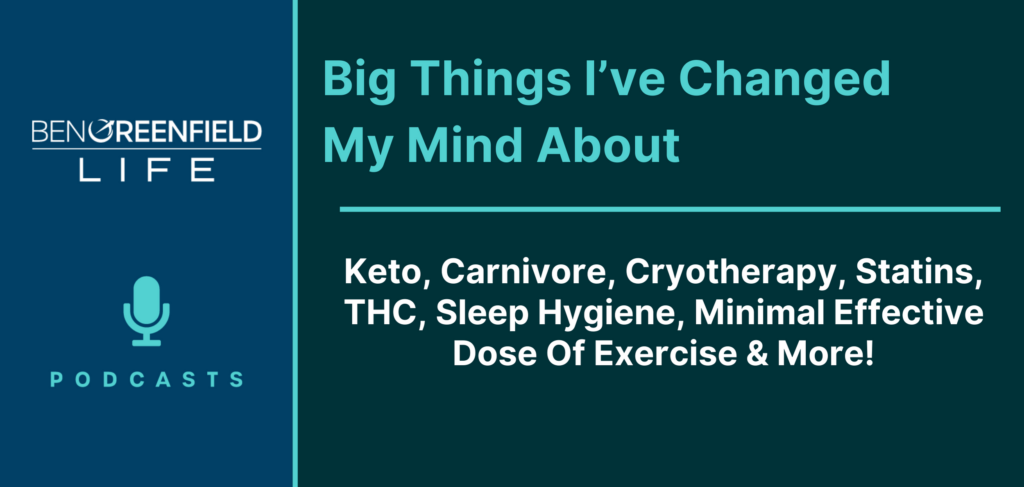
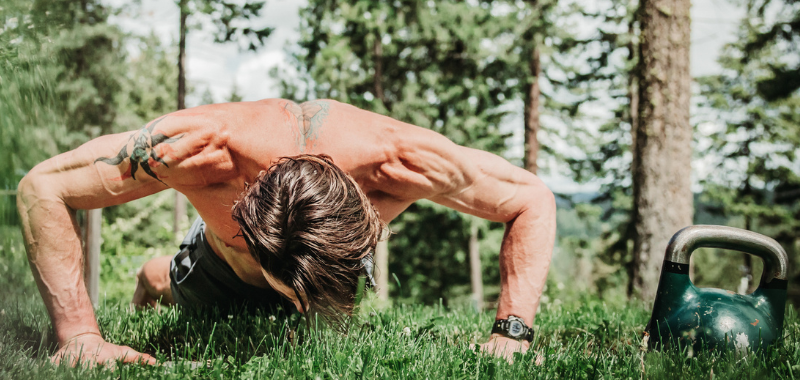

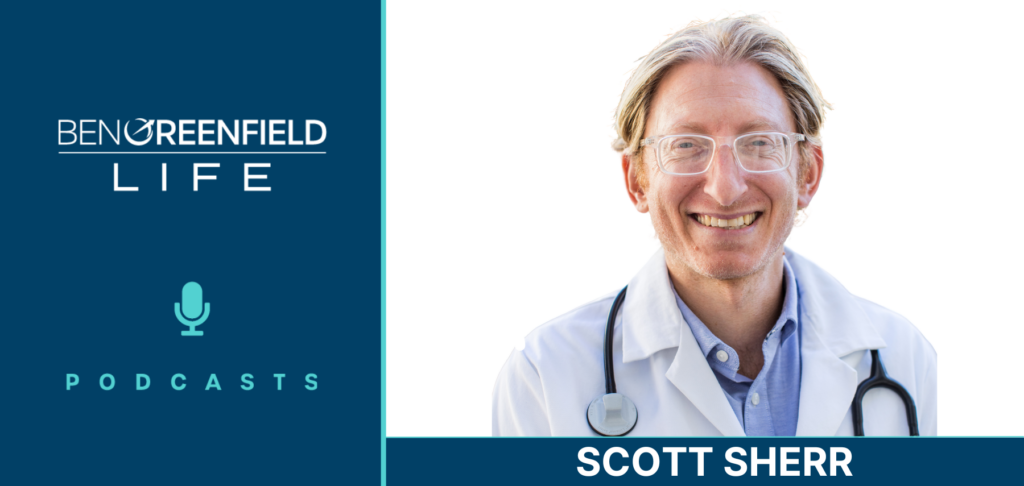
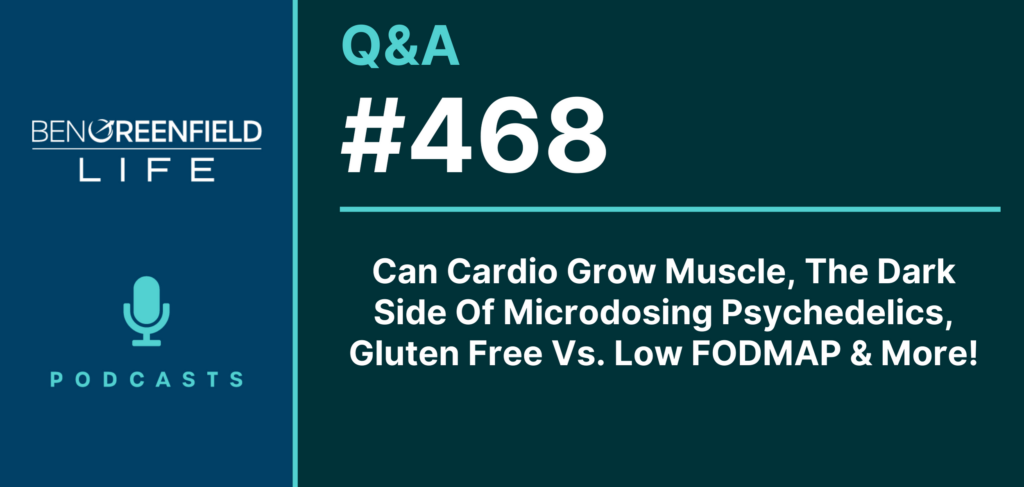


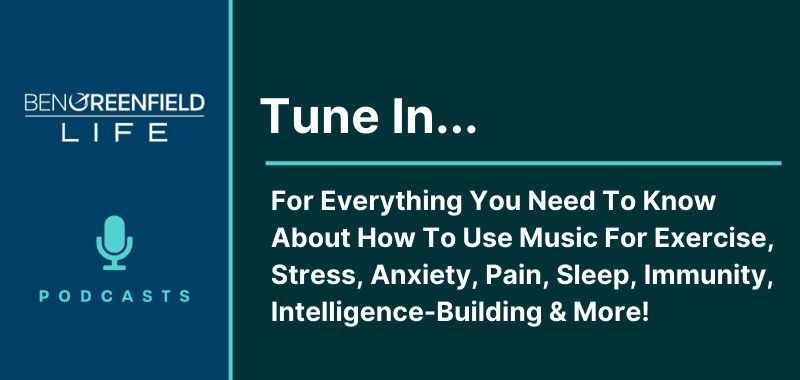




Its been a nice reminder to go back to basics as I feel overwhelmed with my study + work + life. Ill work on it to bring balance into my life again. Thanks Ben .
Hey Clayton,
Thanks to all the helpful feedback from customers like you, we were able to put in a ton of hard work over the last year to work out the kinks in the very first devices that came off the line. They’re working great now and we’re always happy to replace a defective device as they have a 1 year warranty.
All the best,
Dr. Dave
Great article. I wonder if you have seen the science on bacopa?
Great reminders and advice in this day and cultural climate, and entering the holiday season. I am incredibly grateful for your podcasts and weekly emails. Thanks so much!
I got an Apollo shortly after your podcast with Dr. Rabin and it’s an amazing device, problem is, I went through three of them because they kept breaking. I’m waiting another year for them to hopefully get the kinks out so I can get one again.
I always prioritize a sauna session and cold exposure every week, in addition to daily exercise. Plus doing a fisher wallace session at night with 8 hours of sleep keeps my body and life fairly stress free. Mentally, when you accept that you have little to no control of so many things in your life and God is truly in control, you would be amazed at what that does for your life. Without God in my life, no amount of “bio-hacks” would matter because my mind would never be at ease.
I normally don’t experience burn out in my life but I do in working out. So I’ll mix up my weight lifting / daily cardio routine and that helps. It also really helps to spend time with friends in person or on the phone and at the nightly family dinner to talk about your day with the whole family. Turns out being “Old-fashioned” like having faith in God and spending time in community un-plugged from tech is something that feeds your soul.